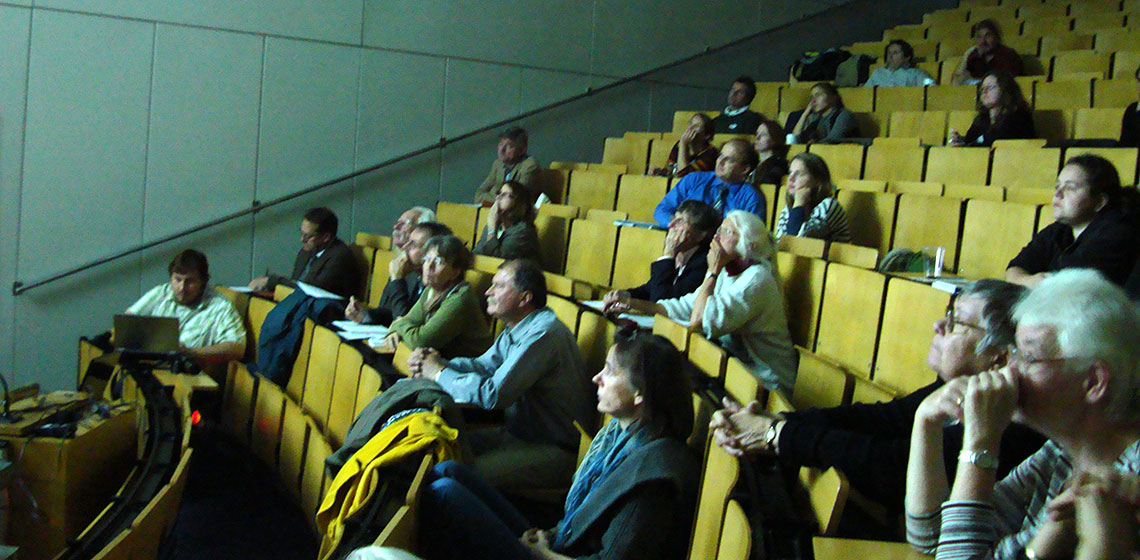The content is published under Creative Commons Attribution 4.0 International license.
Unreviewed Mixed Matters Article:
Conference Review: EXAR in Berlin, October 8-10, 2010

This year’s EXARC Conference took place at the Freie Universität in Berlin and was themed Experimental Archaeology and University. The conference was opened with greetings from Mamoun Fansa and introductions by Prof. Dr. Wolfram Schier of the Institut für Prähistorische Archäologie at the Freie Universität and the EXAR Chairman Dr. Gunter Schöbel from the Pfahlbaumuseum Unteruhldingen.
The first papers of the first day up until the afternoon coffee brake were all in tune with the conference theme. The referents discussed courses, projects and experiments which took place at universities in various countries. It was clear that although experimental archaeology is recognised with many universities as method, it is not everywhere supported actively (yet). A cooperation between experimental archaeologists / archaeo-technicians and universities should be strengthened. One problem are the very condense learning plans but the possibility – depending on theme and planned experiment – for block seminars or weekend courses need to be investigated. Nowadays, at many universities, students get the possibility to take part themselves in experimental archaeology but participation in and quality of experiments depend – as in many other areas in studying archaeology – on personal engagement of the students as well as on financial and local arrangements. At the Archaeoworks-Fair (www.archaeoworks.de) experimental archaeology should be represented even though there is no professional image in the area of experimental archaeology.
Following the coffee break, three papers were given on long term experiments in agriculture and construction of houses. Day Two proceeded with different papers about running projects. By example of the paper on using of secondary and primary Viking Age armaments and a paper on Roman cookery it became clear how hard it is in some cases to at all try and document and analyse results. It became apparent again that with many of the presented experiments, compromises had to be made, partly because of costs or personal reasons, or because experiments failed when it came to bureaucracy or environmental issues. For example it was not allowed to burn tons of wood covered with tar, for a pyre.
The level of the papers was generally speaking high; the presenters clearly distinguished between experiment and show even when presentations mainly were about the latter.
The social and culinary aspect of the conference was well taken care of in the secondary program. At the end of the first day, the participants were invited into the Museumsdorf Düppel (member of EXARC) where one could try out several homemade specialties as well as – very welcome – grill a steak or sausage too. At the second evening the students served in the garden of the archaeological institute among others a Neolithic soup and fresh baked bread from the clay oven in the garden. Sunday, the participants could visit the so called “Neues Museum” which was heavily damaged in WWII and had reopened in October 2009 after a 10 year period of reconstruction. The collection is remarkable with objects from Egypt, Classic Antiquity and prehistory as well as early history.
We like to give a big thank you to the organisers and students for a smooth running of the conference with good meals.
At the Annual General Meeting it was decided that next convention would take place in October 2011 in Schleswig and in Autumn 2012 in Switzerland.
About Authors:
Stefanie Osimitz and Kathrin Schäppi are from ExperimentA – Association for experimental archaeology, Zürich.
Keywords
Country
- Germany

